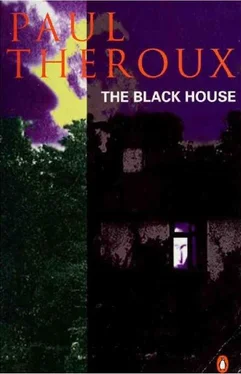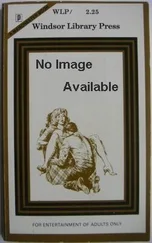Paul Theroux - The Black House
Здесь есть возможность читать онлайн «Paul Theroux - The Black House» весь текст электронной книги совершенно бесплатно (целиком полную версию без сокращений). В некоторых случаях можно слушать аудио, скачать через торрент в формате fb2 и присутствует краткое содержание. Год выпуска: 1996, Издательство: Penguin Books, Жанр: Современная проза, на английском языке. Описание произведения, (предисловие) а так же отзывы посетителей доступны на портале библиотеки ЛибКат.
- Название:The Black House
- Автор:
- Издательство:Penguin Books
- Жанр:
- Год:1996
- ISBN:нет данных
- Рейтинг книги:4 / 5. Голосов: 1
-
Избранное:Добавить в избранное
- Отзывы:
-
Ваша оценка:
- 80
- 1
- 2
- 3
- 4
- 5
The Black House: краткое содержание, описание и аннотация
Предлагаем к чтению аннотацию, описание, краткое содержание или предисловие (зависит от того, что написал сам автор книги «The Black House»). Если вы не нашли необходимую информацию о книге — напишите в комментариях, мы постараемся отыскать её.
The Black House — читать онлайн бесплатно полную книгу (весь текст) целиком
Ниже представлен текст книги, разбитый по страницам. Система сохранения места последней прочитанной страницы, позволяет с удобством читать онлайн бесплатно книгу «The Black House», без необходимости каждый раз заново искать на чём Вы остановились. Поставьте закладку, и сможете в любой момент перейти на страницу, на которой закончили чтение.
Интервал:
Закладка:
“But the most remarkable thing is that a village isolated in this way becomes wholly unaware of its isolation. The village is the world, the people are real, and everything else is mysteriously threatening. So the stranger comes, as I did ten years ago to that remote village, and he is viewed from an alarming perspective. He might be seen as dangerous, or else —it happens—as a kind of savior. He is not a man like them. The Bwamba, who had never seen a white woman before, thought my wife was a man. Ten years ago the Bwamba believed white men were cannibals, who fed on Africans. It’s odd: the only mystery for the stranger is that little clearing in the jungle, which thinks of itself as the only real thing.”
He thought the paradox might drag them into motion, but they were unresponsive, sitting at doubtful attention, some in the sleeping postures of broken statuary. Many were still awake—he knew that from their coughing.
“What if it happened,” he went on, “that the stranger was himself from a remote village? Suppose the English villager meets the African villager— the isolation they have in common is the very thing that isolates them from each other. There is not a syllable of speech they can share. Common humanity, you might reply; of course, yes, but if each has been marked by his solitude, aren’t we then dealing with two separate consciousnesses which have evolved in circumstances so different that nothing at all can be spoken and no judgment can be possible? The English villager might report that what he has seen is strange. What will the African report? The same, of course. Mr. Kurtz said his Africans were brutes; what did those Africans make of Kurtz? What did Schweitzer’s patients make of that shambling old man playing his pipe-organ in the jungles of Gabon? Imagine, if you can, the opinions of Livingstone’s porters, Burton’s guides, Mungo Park’s paddlers! Anthropology is man speculating on man, but when the man who is the subject turns around and becomes the speculator, you see how relative the terms ‘barbaric’ and ‘simple’ and ‘primitive' are.
“And reality, what is reality?” he asked of the dozing people in the hall. “It is a guess, a wish, a clutch of fears, an opinion offered without any hope of proof. One might say that only pain can possibly substantiate it You see the oddest things, you know, dead things or specters, that can cause you such panic that to dismiss them makes any argument for reality a series of arrogant notions inspired by the sharpest fear.”
Emma’s eyes were fixed on him. He spoke to her: “We accept what reality is bearable and try to ignore the rest, because we know it would kill us to see it all. I see Fve wandered a little from my subject,” he said. And he had; the impassive, unresponding audience had caused it. He was talking to himself and to Emma. He said, “In closing, let me say that for a long time I’ve thought of doing a rather unfashionable book, in which we see anthropologists through the eyes of their subjects. Think about it for a moment. Malinowski as described by the Trobriand islanders, Levi-Strauss’s fastidious Frenchness noted by the Nambikwara Indians in the Mato-Grosso. The headhunter’s view of the anthropologist, you might say. It would be interesting to see how we invent one another.”
He expected a reaction but got none. There was not a murmur of recognition from the audience. Munday had been talking forcefully in a high-pitched voice, that preaching tone, to stir them. They had not moved. Now he could see that several more had fallen asleep and the rest had a look of nervous fatigue, as if in speaking so loud (he imagined that, being old, many of them were hard of hearing) he had intimidated those he had not put to sleep. He wanted to fly up to the ceiling and look down at those shining bald spots, that white hair, all those small heads.
He described Bwamba music and played his tape, an old Bwamba woman’s lament for a husband who died young. He translated the song, which was a description of the man, praising him, likening him to a powerful crested crane. The song was a harsh series of caws, with a sad muttered refrain; it was accompanied by a plunking finger-harp and several gourd horns. Afterwards there was some whispering in the hall.
Munday said, “Now let’s look at the people themselves. Mr. Lennit?”
Lennit inserted a box of slides into the projector. He said, “Lights, please,” and the hall, in total darkness, began to purr with the murmuring voices of the old people.
Huge trembling fingers appeared on the screen, fretting like swollen spider’s legs. There was some laughter. Lennit said, “She’s jammed, I think,” and the fingers clutched in the empty square of light.
With a resounding clang, a slide of the eastern slopes of the Ruwenzori Mountains appeared on the screen. It had been taken on a clear day, the mountains were emerald, the cloudless sky a bright blue, and in the foreground was a thick grove of banana trees. There were lingering exclamations in the audience, “Oh!” and “Lovely.”
“Mountains of the Moon,” said Munday. He stood next to the screen, tapping it with a slender stick. “Next slide.”
This was of a back road, russet-colored mud cratered with wide pot-holes. “That,” said Munday, “is the main road into the mountains.” He mused, “I broke any number of springs on that particular stretch.”
8
Succeeding slides took them beyond the mountains to the rain-forest, the bush track through the papyrus swamp, the path at the Yellow Fever Camp, and then they were at the village itself. There was a sequence of village slides: of the huts; of Munday smiling (sunburned, almost unrecognizable in shorts and bush jacket) with the headman; women pounding bananas; small children making playful faces at the camera. The whispers, appreciative of landscape slides, grew flat and noncommittal when Africans were shown. Munday had captions for all the slides: “Women’s work is never done,” he said of the banana pounding; “Children are the same all over the world, though after I took this picture one little chap said, ‘You give me shilling,’ ” and “Village beauty,” he said of a bare-breasted girl taken in close-up: her hair was tightly plaited, she wore a beaded necklace, and her earlobes were rent, pulled into long loops.
The circumcision ceremony, nine slides, plunged the church hall into silence. The men looked wild in headdresses and masks and leggings; the boys’ faces were whitened by ashes and their bodies were streaked with yellow and red paint. They held small spears and had feathers in their hair, and they looked very worried. Then they were on their backs and grimacing. “I consider myself rather lucky to have these slides. They only have a male circumcision every fourteen or fifteen years, and fortunately this one coincided with our stay there. As you can see, some are quite advanced in age—there, that one could be twenty-five or so—” Munday blandly explained the procedure, the chanting, the dancing performed to distract the boys from the pain of being cut.
Lennit clicked on, and twice Munday had to say, “Can we have that one back again?”
Casting his shadow on the brown wrinkled pipe of a Bwamba boy’s penis being tugged by a decorated hand, Munday said, “Unfortunately, I have no pictures of female circumcision. Sorry about that. The Sebei people practice it—so do the Chiga, and of course the Kikuyu. But they wouldn’t allow me to photograph that. Extremely painful. Men aren’t allowed to watch. But this reticence is perfectly understandable. We wouldn’t be very eager to have an African photograph us on our wedding night—”
A shocked male voice in the audience gasped, “God, don’t that look awful!”
The hush in the hall was intense. The slide projector’s fan whirred. In the dark village, in that hot church hall, Africa was a bright square of light, pigeons wheeling among huts, a row of dancing men in birds’ plumage and shabby leopard skins, foliagfe so green and wet it looked newly painted, blue curtains of smoke rising from fire pits, dusty feet and legs in every picture, the blur of hands on a drumhead, a wincing white-faced boy. The last slide was of a boy being helped up from the straw circumcision mat. He had turned his face to the camera and wore an expression of utter fear, which was plain even under the ashes of his make-up. Rivulets of sweat streaked his face, his eyes pleaded; he had been forbidden to cry, but there was anguish in his empty hands.
Читать дальшеИнтервал:
Закладка:
Похожие книги на «The Black House»
Представляем Вашему вниманию похожие книги на «The Black House» списком для выбора. Мы отобрали схожую по названию и смыслу литературу в надежде предоставить читателям больше вариантов отыскать новые, интересные, ещё непрочитанные произведения.
Обсуждение, отзывы о книге «The Black House» и просто собственные мнения читателей. Оставьте ваши комментарии, напишите, что Вы думаете о произведении, его смысле или главных героях. Укажите что конкретно понравилось, а что нет, и почему Вы так считаете.












